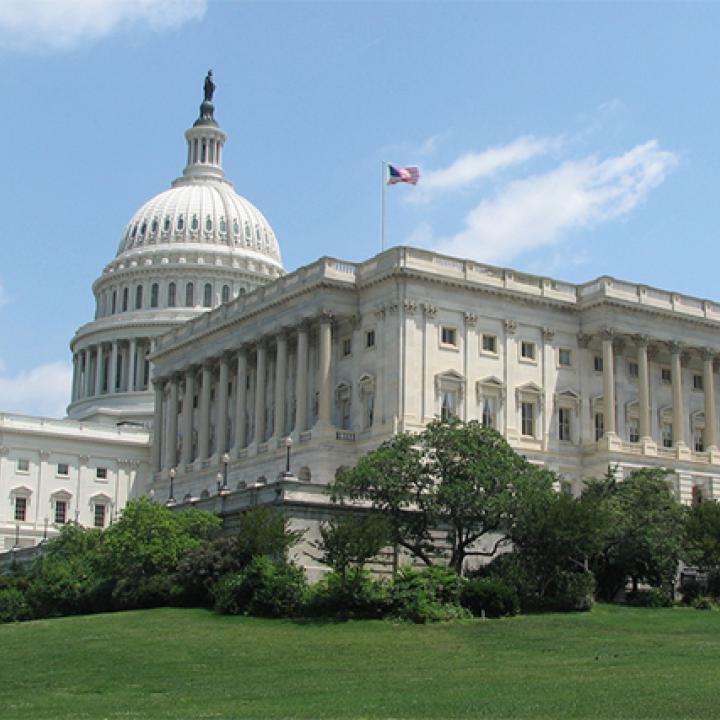
- Policy Analysis
- Congressional Testimony
Bilateral Counterterrorism Cooperation and Changes in Saudi Leadership

When it comes to maintaining, improving, or repairing the kingdom's efforts against the Islamic State and other terrorist groups, many of Washington's tried and tested ways of understanding the royal family's power politics need to be discarded.
The following is an excerpt from Mr. Henderson's remarks as submitted to the House Subcommittee on Terrorism, Nonproliferation, and Trade. To read his full testimony, download the PDF.
The principal challenge for the U.S.-Saudi counterterrorism relationship is that they have more than the usual amount of differences on emphasis and direction, which can apply to even close allies. On Yemen, Washington thinks the Saudi-led military action, now more than a year old, was misconceived and is going nowhere. Additionally, Iran's role in supporting the Houthi rebels has been exaggerated by Riyadh. Furthermore, the U.S. view is that, instead of heading in the direction of calming the tension between Tehran and Riyadh, there is a danger of escalation. It has to be significant that in the recent profile of President Obama in the Atlantic, Saudi Arabia was criticized more severely and more often than any other country, ally or not.
One major issue for the U.S., along with other countries, is that in Saudi perceptions of domestic security, threats are so broadly defined -- effectively from terrorism to texting. Advocates of what would be regarded elsewhere as freedom of speech are dealt with in the same manner and the same special courts as those using violence against the government. Punishment can be draconian and almost random. International opinion was profoundly disturbed by the execution on January 2 this year of no less than forty-seven men accused of various terrorist offenses, some of whom had been on death row for many years. The vast majority were Sunnis with links to al-Qaeda or the Islamic State, but four of those executed were Shiites, including a firebrand preacher by the name of Nimr al-Nimr. In an apparent gesture of fairness, the ratio of forty-three to four is roughly the estimated proportion of Sunnis to Shiites living in Saudi Arabia.
The timing of the executions was seen as sending a message to Shiite extremists supported by Iran, as well as Sunni jihadists, that the kingdom was going to be tough on terrorism. But Riyadh probably did not expect the strength of the reaction. An Iranian mob, almost certainly encouraged by the authorities, sacked and burned the Saudi embassy in Tehran. Riyadh promptly broke off diplomatic relations with Iran, encouraging its Arab allies to do likewise, though most only withdrew their ambassadors -- a lack of unity surely noticed by Iran.
In recent years, the public description of the state of U.S.-Saudi counterterrorism cooperation has been platitudinous, as if any hint of open criticism is counterproductive. But a new and challenging dimension has been introduced in Saudi Arabia since the change of leadership brought about in January 2015, when King Abdullah died. He had been the effective leader for twenty years, though the actual monarch only from 2005. Abdullah was succeeded by his half-brother, Salman, who initially named another half-brother, Muqrin, as his crown prince, and a nephew, Muhammad bin Nayef (MbN), as deputy crown prince. MbN has been a Washington favorite, dubbed "Mr. Counterterrorism" and admired for surviving, at least physically almost unscathed, a suicide bomb attack in 2009.
But in April 2015, three months after Salman's accession, the line of succession changed. Muqrin was sacked. Although he was replaced as heir apparent by MbN, more significantly the number three slot was taken by one of King Salman's younger sons, Muhammad bin Salman (MbS), who is just thirty years old.
At eighty this year, King Salman remains very visible, though reportedly with a range of health issues. There is now little doubt that the monarch wants his son, MbS, to be the next king rather than MbN. How that happens, when it happens, and the consequences of it happening are a matter of conjecture. In the meantime, MbS is in charge of economic policy, including oil policy, and he is the minister of defense running the war in Yemen. MbN, who is reportedly fifty-six years old, is still the minister of interior and chairs the weekly cabinet meetings when the king is absent, but his power and influence appear to be waning. His much younger cousin MbS is the person of consequence for all major issues in Riyadh. MbN, Washington's man, has been sidelined.
At this time, tried and tested ways of understanding the power politics of the Saudi royal family need to be discarded...
House Committee on Foreign Affairs




